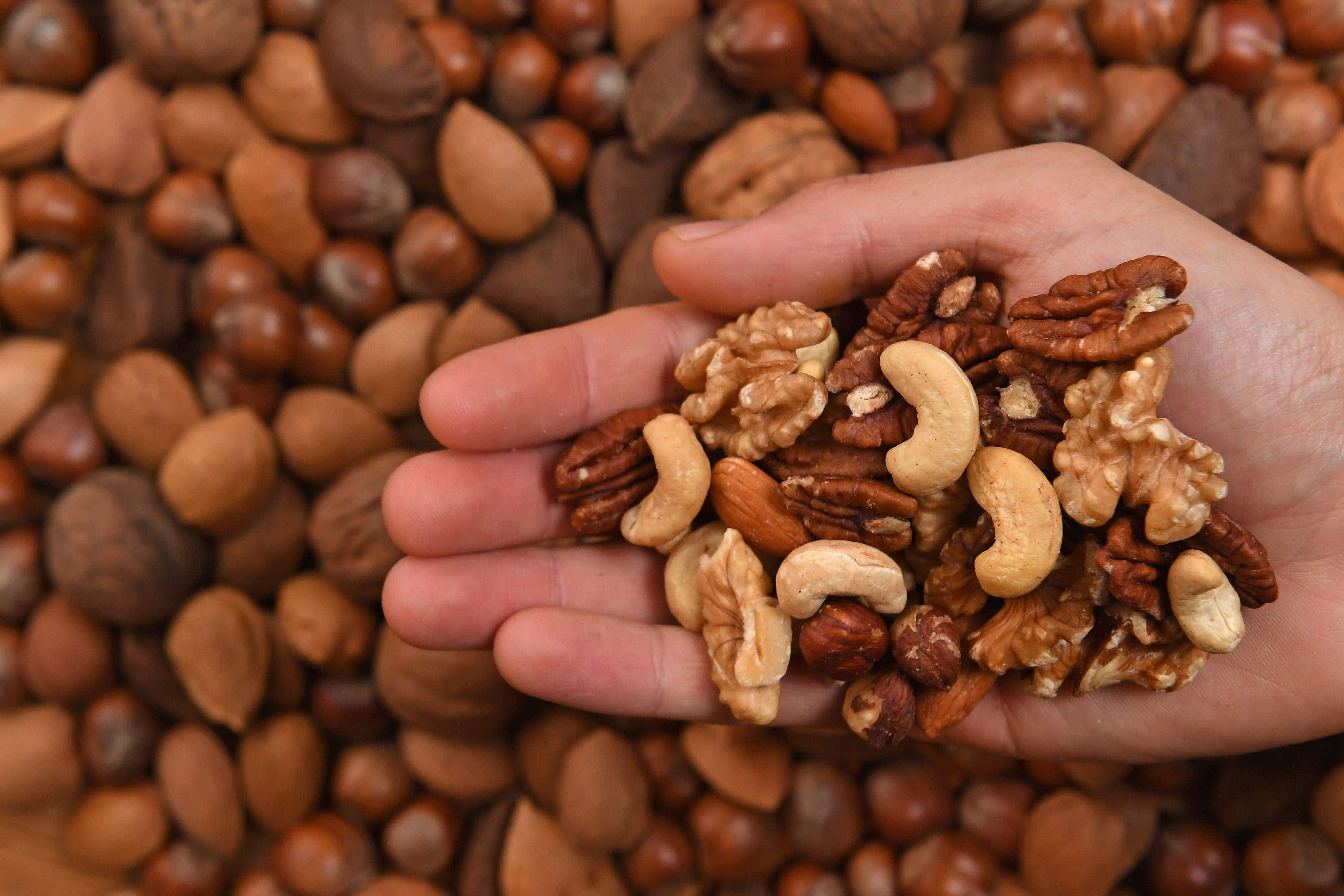Plant protein-rich diets ‘may help women stay healthy as they age’
Researchers suggest their findings support the recommendation that women eat most of their protein in the form of fruits, vegetables, nuts, and seeds.

Your support helps us to tell the story
From reproductive rights to climate change to Big Tech, The Independent is on the ground when the story is developing. Whether it's investigating the financials of Elon Musk's pro-Trump PAC or producing our latest documentary, 'The A Word', which shines a light on the American women fighting for reproductive rights, we know how important it is to parse out the facts from the messaging.
At such a critical moment in US history, we need reporters on the ground. Your donation allows us to keep sending journalists to speak to both sides of the story.
The Independent is trusted by Americans across the entire political spectrum. And unlike many other quality news outlets, we choose not to lock Americans out of our reporting and analysis with paywalls. We believe quality journalism should be available to everyone, paid for by those who can afford it.
Your support makes all the difference.Diets rich in plant protein from foods like beans and nuts may help women stay healthy as they age, research suggests.
The new study found that women who ate more plant-based protein developed fewer chronic diseases and were generally healthier later in life.
Researchers say they saw notably less heart disease, cancer, and diabetes, and cognitive and mental health decline, in those who included more protein in their diets from sources such as fruits, vegetables, bread, beans, legumes, and pasta, compared to those who ate less.
According to the findings, women who ate greater amounts of animal protein tended to have more chronic disease.
Getting the majority of your protein from plant sources at midlife, plus a small amount of animal protein seems to be conducive to good health and good survival to older ages
Andres Ardisson Korat, a scientist at the Jean Mayer USDA Human Nutrition Research Centre on Ageing (HNRCA) at Tufts University, USA, and lead author of the study, said: “Consuming protein in midlife was linked to promoting good health in older adulthood.
“We also found that the source of protein matters. Getting the majority of your protein from plant sources at midlife, plus a small amount of animal protein seems to be conducive to good health and good survival to older ages.”
He added: “Those who consumed greater amounts of animal protein tended to have more chronic disease and didn’t manage to obtain the improved physical function that we normally associate with eating protein.”
Researchers suggest their findings support the recommendation that women eat most of their protein in the form of fruits, vegetables, nuts, and seeds, although they should also consume some fish and animal protein for their iron and vitamin B12 content.
“Dietary protein intake, especially plant protein, in midlife plays an important role in the promotion of healthy ageing and in maintaining positive health status at older ages,” Dr Ardisson Korat said.
The researchers looked at the Harvard-based Nurses’ Health Study, which followed female health care professionals from 1984 to 2016.
The women were between the ages of 38 and 59 in 1984 and deemed to be in good physical and mental health at the start of the study.
Researchers looked at data on how frequently people ate certain foods to identify dietary protein and its effects on healthy ageing.
The diets of women who did not develop 11 chronic diseases or lose a lot of physical function or mental health, were compared with the diets of those who did.
According to the findings, women who ate more plant-based protein – which in 1984 was defined as protein obtained from bread, vegetables, fruits, pizza, cereal, baked items, mashed potatoes, nuts, beans, peanut butter, and pasta – were 46% more likely to be healthy into their later years.
Those who consumed more animal protein such as beef, chicken, milk, fish/seafood, and cheese, however, were 6% less likely to stay healthy as they aged.
The study found that plant protein was more closely linked with sound mental health later in life.
For heart disease in particular, eating more plant protein came with lower levels of bad cholesterol, blood pressure, and insulin sensitivity, while higher animal protein intake was tied to higher levels, along with increased insulin-like growth factor, which has been detected in multiple cancers.
The findings, published in the American Journal of Clinical Nutrition, also suggest that dairy protein alone (mainly milk, cheese, pizza, yoghurt, and ice cream) was not significantly associated with better health status in older adulthood.